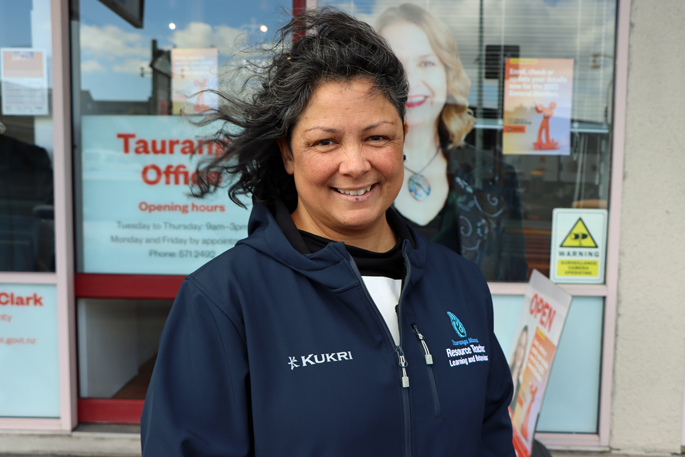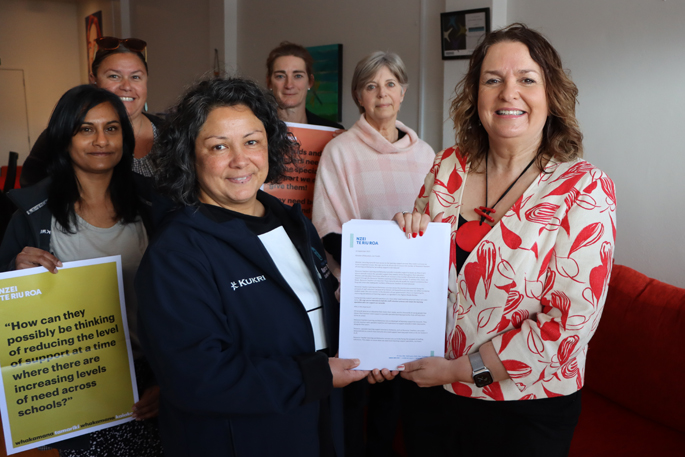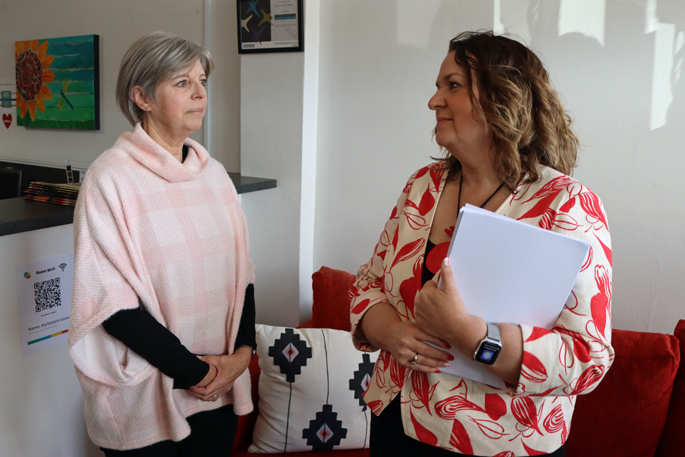Increasing numbers of children need extra help in the classroom, but an “outdated” system could see a drop in specialist teachers to support them.
One in five students need extra support in the classroom, including for learning difficulties, physical or mental health, or behaviour challenges, according to the Ministry of Education.
Resource teachers of learning and behaviour (RTLBs) help those students that are struggling in the classroom.
“Schools love us, we're like the cavalry. We take anyone and everyone that is referred to RTLB,” RTLB Nik Smith said.
In May this year, the Ministry of Education advised 30 of the country’s 40 RTLB clusters there could be a possible reduction in numbers for 2024. Ten were advised there would be no change.
Smith and her colleagues presented a 5700 signature petition to Education Minister Jan Tinetti last week, calling on the Government to not cut their specialist support in schools.
Resource teachers face a reduction in numbers next year because of “an historic roll-based formula” that does not reflect the increasing needs of students, Smith said.
Student to RTLB numbers are ratio-based and depend on the number of students at a school.
 Specialist teacher Nik Smith said they have been under-resourced for far too long. Photo: Alisha Evans/ SunLive.
Specialist teacher Nik Smith said they have been under-resourced for far too long. Photo: Alisha Evans/ SunLive.
“In our hardest hit areas, the ratio has dropped, so they [Ministry of Education] are calling for a reduction in RTLB numbers. Obviously that is a huge shock to the RTLB whānau,” said the Tauranga teacher.
“We have been under-resourced for far too long. It would be negligent of the Government to reduce staffing when we’re desperately needed.
“Removing RTLB is shockingly irresponsible [and] detrimental to tamariki most in need of support.”
Specialist teachers must complete two years of post-graduate study, often while working. Some of them are partway through study and face losing their job, she said.
The Tauranga Moana cluster has 42 RTLBs that cover 67 schools between Katikati and Otamarakau.
Although the cluster isn’t losing staff, the number of referrals had increased, Smith said.
Tauranga Moana cluster manager Marie Petersen told Tinetti they were “fortunate” to keep the same number of RTLBs, but the service could be widened.
“We're here on behalf of clusters that are really hurting, particularly in areas with high Māori, high poverty. It's just a hard service to lose, schools are relying on it,” said Petersen.
Tinetti said she was speaking with officials and wanted to “make certain” people understood the importance of the RTLB role.
“RTLBs are our specialist teacher workforce. I don't think people understand this huge resource that we've got and the potential for difference that they can make.
“We have been through this massive disruption, that's bigger than any of us have ever known, but with disruption comes huge opportunity and I believe there's a huge opportunity in this space.”
 Nik Smith and her colleagues presented Education Minister Jan Tinetti with a 5700 signature strong petition. Photo: Alisha Evans/ SunLive.
Nik Smith and her colleagues presented Education Minister Jan Tinetti with a 5700 signature strong petition. Photo: Alisha Evans/ SunLive.
The former Merivale School principal said she wanted “action to happen” and RTLB formed a large part of the Highest Support Needs Change Programme.
The review is designing a new system to better support children and young people that need increased learning support.
Ministry of Education operations and integration leader Sean Teddy the ministry advised RTLB clusters in October of their staffing for the following year, based off the July school roll.
Teddy said the early notice in May was to enable clusters to plan and manage any changes in their staffing. It was also a requirement to uphold the Primary Teachers Collective Agreement.
In previous years, roll growth has meant there was an annual year-on-year increase in the national RTLB workforce, he said.
The number of full time equivalent RTLBS has risen from 763 in 2012 to 1001 in 2023.
“The Ministry is currently working on staffing decisions for the 2024 school year. Clusters will soon have these decisions which may include reductions or increases based on the July roll-return data for each cluster.”
Any changes would be a “small portion” of the RTLB workforce and would be managed by cluster leadership, Teddy said.
Public Interest Journalism funded through NZ On Air.




1 comment
Real help
Posted on 20-09-2023 07:10 | By LeeW
Schools would actually prefer specialist teachers who come in and actually work 1-1 with children not RTLBs who come in, demand reams of paperwork, give vague "advice" and leave.
Leave a Comment
You must be logged in to make a comment.